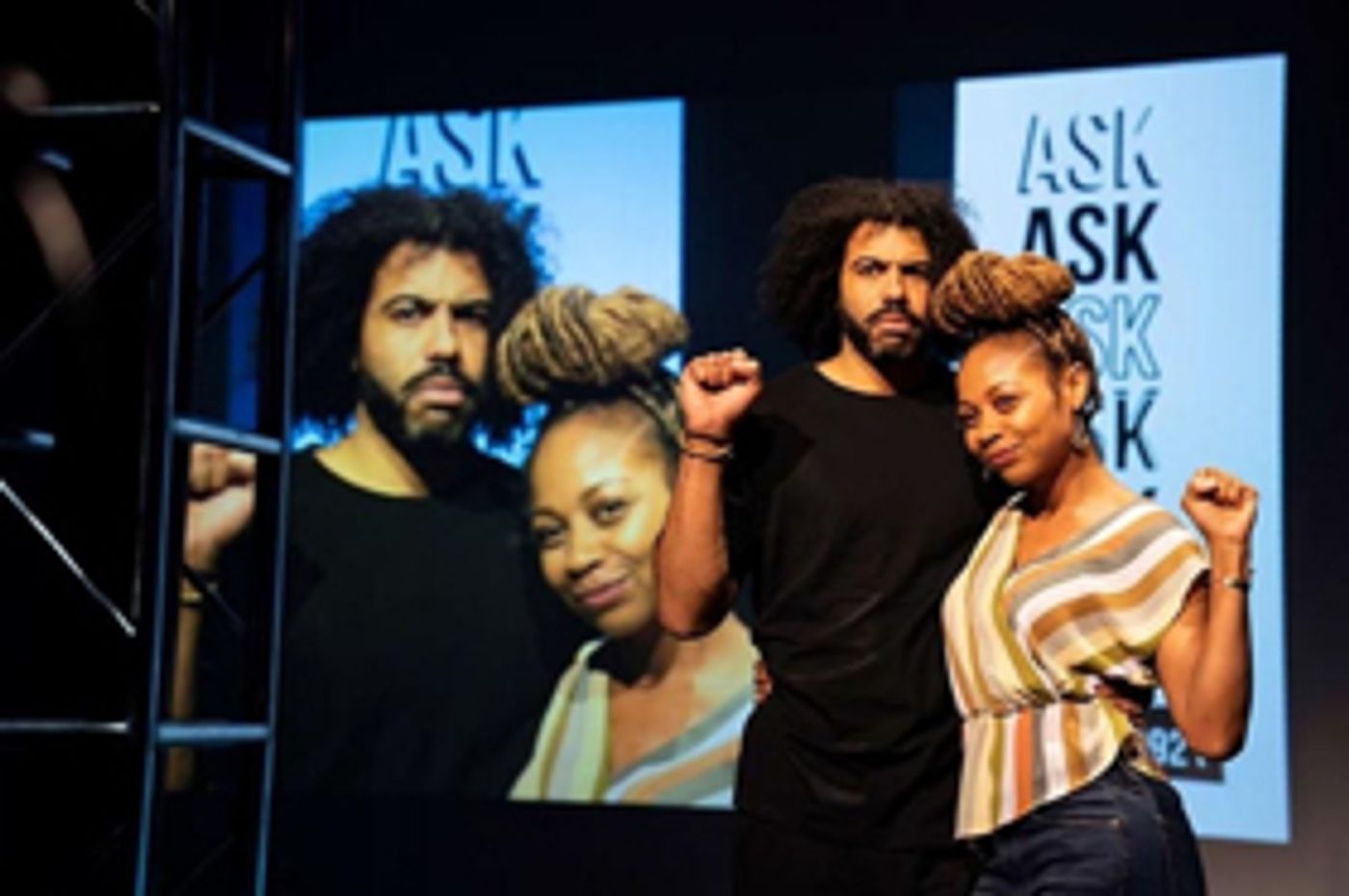Review Roundup: What Did The Critics Think of WHITE NOISE, Starring Daveed Diggs, at the Public Theater?
The show plays through Sunday, May 5.

The Public Theater's White Noise, written by Public Theater Master Writer Chair and Pulitzer Prize-winning playwright Suzan-Lori Parks, and directed by Oskar Eustis, officially opened last night, March 20. The show just recently announced an extension through Sunday, May 5.
Long-time friends and lovers Leo, Misha, Ralph, and Dawn are educated, progressive, cosmopolitan, and woke. But when a racially motivated incident with the cops leaves Leo shaken, he decides extreme measures must be taken for self-preservation.
The complete cast of White Noise features Daveed Diggs (Leo), Sheria Irving(Misha), Thomas Sadoski (Ralph), and Zoë Winters (Dawn).
Let's see what the critics are saying...
Ben Brantley, The New York Times: Though "White Noise" runs a full three hours, and skids on some of its plot twists, it doesn't feel long. By its end, you may marvel at how many forms, faces and exploitative uses of racial identity it has covered. In her monologue, Misha says that racism is a virus.
Matt Windman, amNewYork: Notwithstanding its far-fetched and questionable concept, "White Noise" (which runs exactly three hours in length) is mostly engrossing and provocative. It is also overstuffed, with portions that are jumbled and stagnant (including rambling confessional monologues), suggesting that the play would benefit from further revision.
Tim Teeman, The Daily Beast: Parks' ideas and arguments are so alive one can look past the play's plausibility-stretching plot points; indeed, the slavery dynamic is so convincingly acted, frighteningly so, that its plausibility becomes sharpened. White Noise is both a thought-provoking and thoughtful examination of racism, and the vexed politics of race and identity that have tested interracial relations personally and politically to so many breaking points.
Alexis Soloski, The Guardian: Has Parks been too free here or not free enough? The play feels overlong and somehow abridged, confined to four characters it is narrow where it might have been expansive and sensational where it might have been restrained. When all-out absurdity rears (one character uses a white card to join a white club) it's hard to know how to take it. Clint Ramos's set, both empty and crowded and occasionally a bowling alley, doesn't always help.
Frank Scheck, The Hollywood Reporter: The play feels bloated, padding out its brazen concept with numerous unnecessary subplots, including unexpected romantic liaisons, to the point where it runs over three hours. The narrative momentum stops cold every time one of the characters steps forward to deliver a lengthy monologue that feels designed to be performed in an acting-school course. The evening seems to lose focus the more it goes on, with the playwright struggling to deal with every aspect of the current and past state of race relations.
Sara Holdren, Vulture: White Noise pulses with this same recognition, bracing against the pain, that all the destruction of our moment needn't-mustn't-be the be all and the end all. That our moment is in fact a moment - not a death but a guts-rearranging transformation. Parks was a writing student of James Baldwin, from whom she borrows the epigraph for White Noise, and her play powerfully transmutes his epigrammatic wisdom into boldly embodied truth: "Not everything can be changed. But nothing can be changed until it is faced."
Robert Hofler, The Wrap: The four characters in "White Noise" aren't so much characters as they are archetypes of race, class and privilege who level stinging barbs at one another that would immediately vaporize any other real-world interracial friendship or affair. And that's true before Parks drops the play's big bomb.
Jonathan Mandell, DC Theatre Scene: White Noise would not work as well as it does without the performances of the four cast members, under the director of Public Theater artistic director Oskar Eustis. Daveed Diggs has a challenging role, given his character's decision to become a slave, which he calls his Quest. Thomas Sadoski, too, must work to make his character both credible and relatable.
Melissa Rose Bernardo, New York Stage Review: The genius of White Noise isn't simply in the idea; it's in where Parks-and her tight-knit cast, guided by Public artistic director Oskar Eustis-takes it, and she takes it to some very, very disturbing places. Let's just say that Ralph, who brags that his students call him "Righteous Ralph," quickly devolves into Self-Righteous Ralph, and becomes less concerned with doing the right thing (i.e., helping his friend) than doing the white thing.
David Finkle, New York Stage Review: As a matter of cogent fact, White Noise is an addition to Parks' list of probes on American racism, a piercing look into the unending battle among the races. Moreover, it's such an unexpectedly offbeat take-Parks is, of course, often commandingly offbeat-that writing about it in detail is a reviewer's challenge.
- To read more reviews, click here!
- Discuss the show on the BroadwayWorld Forum
Reader Reviews
Powered by
|
Videos

